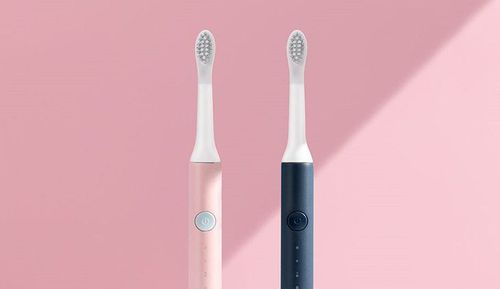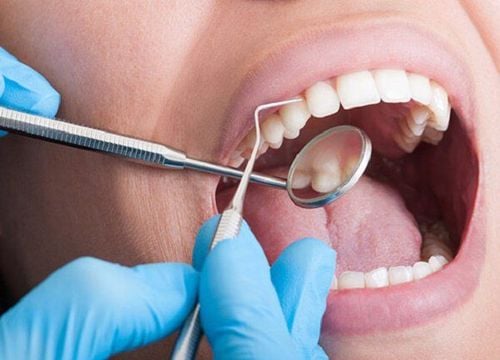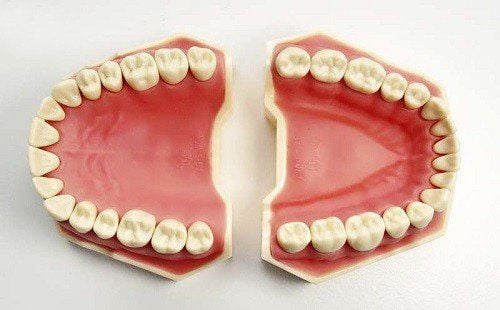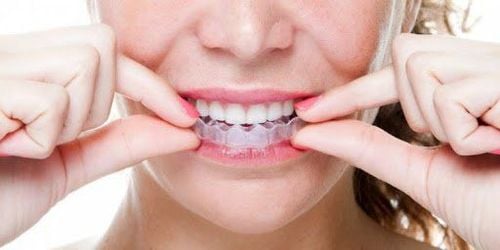This is an automatically translated article.
Tooth decay is the most common oral health condition in the world. This condition is especially common in children, adolescents, and the elderly. But anyone with teeth can get cavities, even babies. So what to do to prevent tooth decay?
1. What is tooth decay?
Cavities are permanent damage to the enamel surface of the teeth, which develops into tiny gaps or holes. Tooth decay is caused by a combination of different factors, including bacteria in the oral cavity, snacking habits, sugary drinks, and poor oral hygiene.
If tooth decay is not treated, the damage will grow and affect the deeper parts of the tooth. This can lead to severe toothache, infection and tooth loss. Regular dental visits along with good brushing and flossing habits are your best defense against tooth decay.
2. What is the cause of tooth decay?
Tooth decay is a process that takes place over time, it develops through the following stages:
Plaque: Plaque is a transparent sticky film that covers the outer surface of the teeth. Plaque forms because you eat a lot of sugar and starch and do not clean your teeth thoroughly. When sugars and starches stick to teeth, bacteria will quickly grow and form plaque. Plaque on teeth can be located below or above the gum line, it hardens to form tartar (calcium), making it harder to remove and creating a shield for bacteria to grow. Plaque attacks teeth: Acids in plaque destroy minerals in the enamel layer. This erosion causes small holes in the enamel - the first stage of tooth decay. Once the enamel is eroded, bacteria and acids can attack the next layer of the tooth, called the dentin. This layer is softer than enamel and less resistant to acids. The dentin has tiny tubes that connect directly with the nerve of the tooth, so when caries attack here, it will cause sensitivity. Tooth decay continues to grow: As tooth decay develops, bacteria and acids continue to travel through your teeth, traveling to the pulp, where nerves and blood vessels are located. The pulp of the tooth is swollen due to bacteria entering, compressing the nerve causing pain. The discomfort can even extend beyond the root to the bone. Everyone is at risk for tooth decay, the following factors can increase your risk of tooth decay:
Location of teeth: Cavities usually occur in the inner teeth (molars and premolars). These teeth have a lot of grooves, holes and crevices, and many roots where food particles are easy to get stuck. As a result, they are harder to keep clean than your soft and easily accessible front teeth. Certain foods can cause tooth decay: Certain foods can stay on your teeth for a long time, such as ice cream, milk, honey, sugar, soda, dried fruit, hard candies and mints, cakes, and cookies. , dry cereals and chips are more likely to cause tooth decay than foods that are easily washed away by saliva.
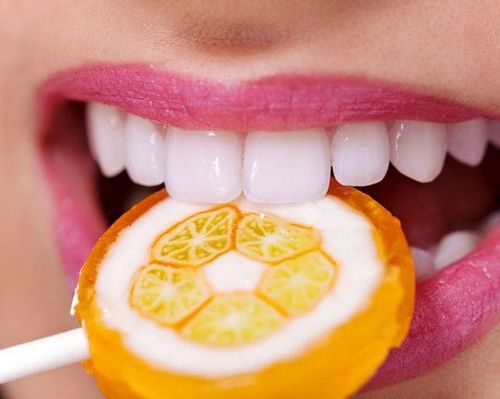
Ngừa sâu răng sẽ không hiệu quả khi bạn dùng quá nhiều một số loại thực phẩm có hại cho răng
Frequent snacking: If you regularly snack or sip sugary drinks, you provide a favorable environment for bacteria to grow, creating acids that attack enamel and wear down teeth. Drinking soda water or acidic beverages regularly throughout the day will help create a constant amount of acid that coats your teeth, wearing away enamel. Feeding babies before bedtime: When babies are given milk, formula, juice or other sugary liquids before bedtime, these drinks stay on their teeth while they Sleep creates an environment for bacteria to grow that causes tooth decay. This condition is also known as bottle tooth decay. Similar damage can happen when toddlers drink these drinks from a small cup. Not brushing enough: If you don't clean your teeth soon after eating, plaque builds up quickly and the early stages of tooth decay can begin. Lack of fluoride: Fluoride is a naturally occurring mineral that helps prevent tooth decay and can even reverse the earliest stages of tooth damage. Because of fluoride's benefits to teeth, it is added to many public water supplies. It is also a common ingredient in toothpastes and mouthwashes. Bottled water usually does not have fluoride. Age: In the United States, tooth decay is more common in children, adolescents, and the elderly who are also at higher risk. Over time, teeth can wear down and gums can recede, making teeth more susceptible to root decay. Older adults may also be taking medications that reduce saliva flow, increasing the risk of tooth decay. Eating disorders: Like anorexia and bulimia, both can lead to tooth wear and tooth decay. The stomach acid from repeated vomiting washes away the teeth and begins to dissolve the enamel. Eating disorders can also interfere with saliva production.
3. Complications of tooth decay
You might think tooth decay isn't a concern because it's so common. And you might think that it doesn't matter if your child has cavities in their baby teeth. However, tooth decay can cause serious and long-term complications, even for children who have not yet had permanent teeth.
Complications of tooth decay include:
Pain Tooth abscess Swelling or pus around the tooth Damage or fracture of the tooth Chewing problems Changing the position of a tooth after a tooth loss When the decay becomes severe, You may encounter the following conditions:
Toothache that affects daily activities. Weight loss or nutritional problems due to difficulty eating or chewing. Losing teeth can affect your appearance as well as your confidence. In rare cases, a tooth abscess can lead to a more serious or even life-threatening infection. Therefore, what you need to do is to prevent tooth decay, to avoid this situation from happening.

Phòng ngừa sâu răng hiệu quả giúp bạn tránh xa các cơn đau do sâu răng gây ra
4. Ways to prevent tooth decay
Good oral hygiene can help you avoid tooth decay and other dental problems. Here are some ways to prevent tooth decay. However, ask your dentist what advice is best for you.
Brush teeth after eating or drinking: Brush teeth at least twice a day and preferably after each meal, using a toothpaste containing fluoride. To clean between your teeth, floss or use an interdental cleaner. Gargling: Gargling is also a method of oral protection along with brushing. If your dentist finds you're at high risk for tooth decay, he or she may recommend using a fluoride mouthwash. Regular dental visits: Professional teeth cleanings, and regular dental exams, can help prevent or detect dental problems early. Your dentist can recommend a routine dental checkup schedule that is best for you. Limit snacking: Whenever you snack or drink beverages other than water, you help the bacteria in your mouth produce acids that can destroy tooth enamel. If you snack or drink sugary drinks continuously throughout the day, your teeth are under constant attack. Eat foods that are good for your teeth: There are a number of foods and drinks that are good for your teeth. But still need to avoid letting food stick for a long time in the grooves and between the teeth, or brush your teeth right after eating. However, there are foods like fresh fruits and vegetables that help increase saliva flow, and unsweetened coffee, tea, and gum that help wash away food debris. Ask your dentist about antibacterial treatments: If you're particularly susceptible to tooth decay - such as because of a medical condition - your dentist may recommend special antibacterial mouthwashes or other treatments to prevent tooth decay. Helps reduce harmful bacteria in your mouth. Combination treatments such as: Chewing gum containing xylitol along with prescription fluoride and antibacterial mouthwash can help reduce the risk of tooth decay. Specialty Dental - Jaw - Facial - Vinmec International General Hospital is the address for examination and treatment of all dental problems including cavities, orthodontics, cosmetic dentistry... All procedures are performed by a team of doctors and dentists with many years of experience and good expertise combined with modern equipment and machines. Therefore, customers can be assured of medical quality at Vinmec..
Please dial HOTLINE for more information or register for an appointment HERE. Download MyVinmec app to make appointments faster and to manage your bookings easily.




